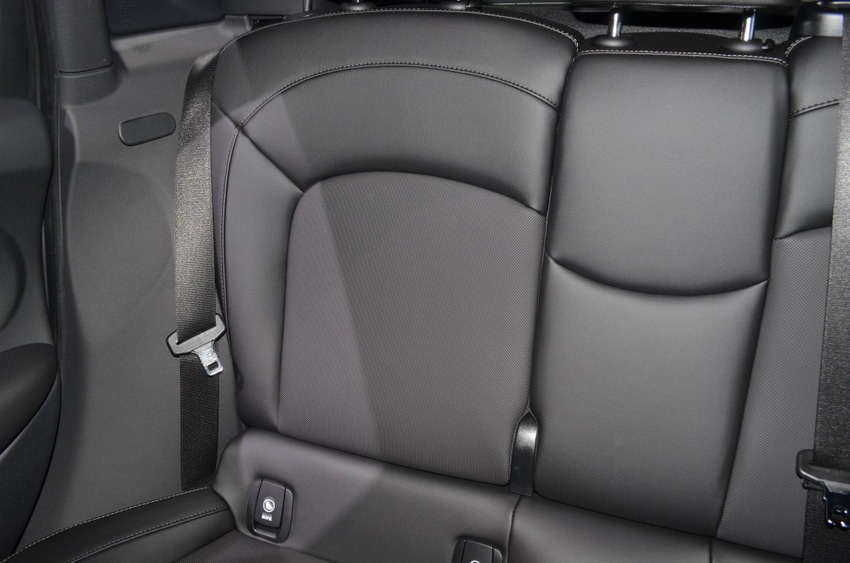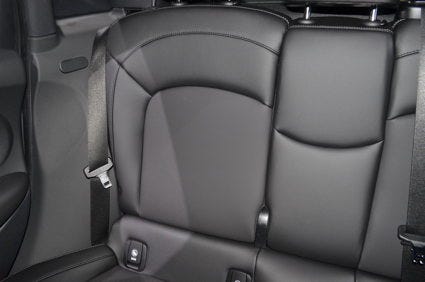PP compounds deliver weight savings to automakers
Advanced polypropylene (PP) compounds continue to enable automakers to save weight in their latest vehicles. PP supplier LyondellBasell recently outlined some of the latest commercial examples where the resin's role was crucial.
March 30, 2015

Advanced polypropylene (PP) compounds continue to enable automakers to save weight in their latest vehicles. PP supplier LyondellBasell recently outlined some of the latest commercial examples where the resin's role was crucial.
|
Soft touch reinforced PP used in the rear quarter panel of the new 5-door Mini. (Source: A2Mac) |
One such application is the Rear Quarter Panel in the new 5-door Mini that was manufactured using a soft-touch Softell-PP compound that reinforced with 25% glass fiber. Compared with the PC/ABS mix that has been used previously, Softell TKG 300N reportedly demonstrates improved haptics and lower weight and allows for a matte surface finish that meet the interior design criteria of the customer. Added customer advantages are a favorable balance between toughness and stiffness, low emissions, UV stability and scratch resistance.
LyondellBasell has also developed low-density material solutions for the bumpers of the latest BMW 3 and 7 series and the e-cars i3 and i8, where Hifax TKC 461X Black has been used successfully in both applications. The reduced talc content of 12% realizes a significant weight saving compared to the 20% talk filled compound used previously. This material also supports the zero-gap concept in a temperature range with low thermal expansion. Further, it is said to exhibit good paintability and a balance between toughness and stiffness.
The market for thermoplastic polyolefin (TPO) compounds for thick-sheet thermoformed parts in the automotive and transportation industry continues to grow at a healthy pace according to LyondellBasell. The latest application is the use of Sequel E3400 in the US, where LyondellBasell is offering a TPO for the rear doors of a new range of refrigerator trucks.
The benefits compared with the foamed ABS previously used are enhanced low temperature impact strength and cracking resistance, and superior weatherability without the need for a cap layer. Additional customer benefits are excellent dimensional stability and chemical resistance which all contribute to a cost and weight savings in the production of these parts.
LyondellBasell is also a material concept that offers the potential to save 10 kg of car weight by using innovative PP compounds and technologies dubbed SAVE 10. The concept encompasses:
1) A new generation of materials with lower density as drop-in solution (same tool shrinkage) for interior and exterior applications;
2) Manufacturing of aesthetically-pleasing surfaces for interior applications with uncoated Softell-Compounds in one injection molding step, replacing painted technical polymers;
3) Latest generation of short glass fiber-reinforced materials to replace higher density and higher cost technical polymers for structural parts;
4) Solutions with organic fillers and lower density to replace talc-reinforced grades for structural parts as drop-in solution;
5) Solutions with foamed PP compounds (soft & rigid) for weight saving and;
6) Plastic Interface Technology, which is innovative bonding enabling back molded plastic composite materials with high class surfaces such as aluminum in one injection molding step.
About the Author(s)
You May Also Like



